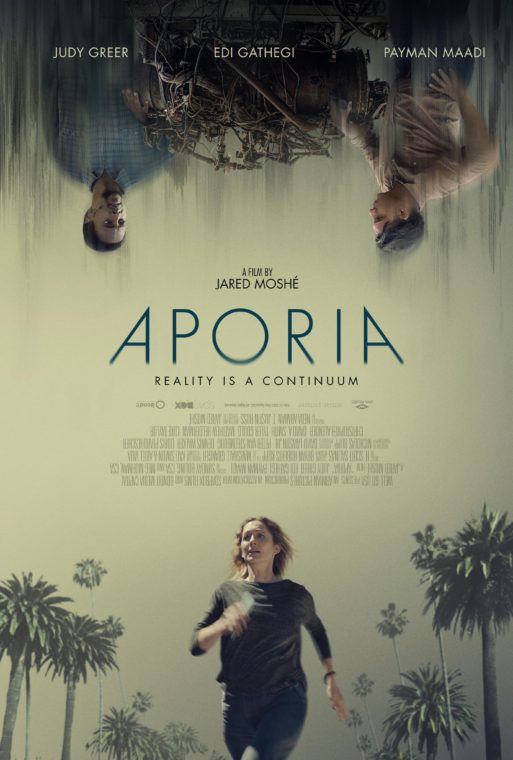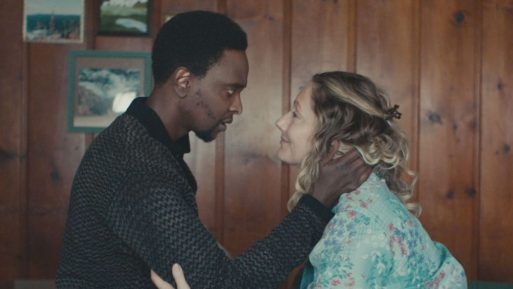
“Aporia,” directed by Jared Moshe, presents a fresh take on the time travel genre. It also shows us how grief can affect people in different ways and illuminates the lengths some people will go to avoid feeling the pain of loss. In doing so, it serves as a warning for future generations: Do not try to bring back deceased loved ones with a time machine.
Grief Does Its Work
“Aporia” starts with a loss. A drunk driver has already taken the life of the father and husband, Mal. His wife Sophie, played by Judy Greer, whom you may recognize from “Jurassic World” or “Ant-Man,” is left to pick up the pieces. One of those pieces is the couple’s adolescent daughter, Riley.
Riley is not handling the loss of her father well. She’s acting out in school, getting suspended, and disobeying her mother. Sophie, meanwhile, is freshly single, without the assistance of a partner to shoulder this newly weighted child-rearing load. Sophie reaches out to Mal’s best friend, Jabir, played by Payman Maadi, star of the Iranian film “A Separation.” And that’s where things get interesting.
A Different Kind of Solution
Sophie finds out that Mal and Jabir were doing interesting things in their man cave — namely, working on a time machine. They weren’t able to complete it, but they got far enough to make it into a weapon that can travel back in time and kill people. What if they killed the drunk driver who took Malcolm’s life?
Spoiler alert
They do. And by doing so, they bring Mal back. And everyone is happy for a little while. Then they start to wonder what other suffering they can alleviate by killing bad people from the past.

Jabir and Sophie conspire to bring Sophie’s husband back from the dead in “Aporia.”
Credit: Well Go Entertainment
They fail to consider the ripple effects that each of these changes to the past can have on their present lives. After a little too much tinkering, the lives that they thought they were saving have become something else entirely. The people that they thought they were getting closer to have been pushed apart. And suddenly, their lives are wholly unrecognizable.
What We Can Learn From “Aporia”
Grief is not an easy emotion. It’s rarely linear, easy to define, or pleasant to work through. In “Aporia,” we see this playing out with the main characters. In fact, the struggle is so difficult that they find a way to avoid it completely. Of course, when you avoid feeling emotions, you often pay a price later.
This film does a beautiful job of illustrating this point. By resuscitating Mal, everyone feels immense relief from the weight of the grief they were under. And everyone seems content with the decision they’ve made. But it doesn’t take long to see the real effects of their choice and the new choices they make as a result.
It mirrors any form of escapism, be it with substances, food, or devices. It may feel like a relief to escape the pain of grief, but the more you escape it, the more you leave yourself. And the more you leave yourself, the less recognizable your life will become.
“Aporia” is a time travel film on the surface, but underneath it’s a film about accepting what is and allowing the cycle of grief to complete.
Watch the official trailer for “Aporia” below.

 “Aporia” directed by Jared Moshe
“Aporia” directed by Jared Moshe


 “Songbird” by Fleetwood Mac
“Songbird” by Fleetwood Mac
 First the Wealth Gap, Now the U.S. Has a Growing Health Gap
First the Wealth Gap, Now the U.S. Has a Growing Health Gap
 How to Comfort A Dying Loved One
How to Comfort A Dying Loved One














